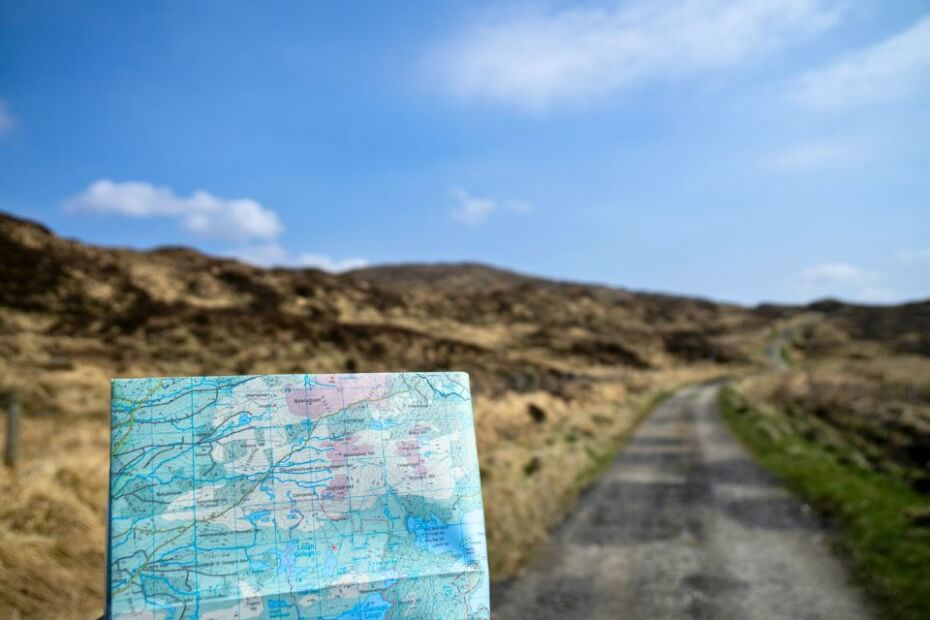
The United Kingdom (UK) Home Office has acknowledged that it will be a “challenge” for the new Electronic Travel Authorization (ETA) scheme to prevent illegal entry into the country via Ireland.
The ETA is a new digital travel permit required for all travelers who can visit the UK without a visa for short trips.
This includes all visa-exempt travelers visiting Northern Ireland or Great Britain via the Republic of Ireland.
However, the UK, Ireland, Guernsey, Jersey, and the Isle of Man have a long-standing Common Travel Area (CTA) arrangement.
It allows its citizens to live and work in any part of the member territories and travel freely without immigration checks.
During a Justice and Home Office Affairs Committee meeting, Lord Sandhurst inquired about enforcing the ETA scheme on the border between the UK and Ireland.
If foreign nationals with “villainous intent” cross the border or “hop on a plane” from Ireland to the UK without an ETA, what can the Home Office do?
“I may be committing a criminal offense, but how are your lot and the security people going to know that I have done this?” asked Lord Sandhurst.
Simon Bond, senior director of Border Transformation at the UK Border Force, said it is “certainly a challenge.”
“The overall intent is to understand as much as possible about everyone coming to the UK, in order to upstream all of those checks,” he said.
The Independent reported that Bond did not respond when asked if the Ireland-UK route would be the one to take if one aims to threaten the UK’s national security.
Enforcing the ETA in the CTA
The ETA will be mandatory for all visa-exempt nationals visiting the UK for leisure business, study, and transit.
It costs £10 per application and is valid for two years or until the traveler’s passport expires sooner.
Currently, only travelers from Bahrain, Jordan, Kuwait, Oman, Qatar, Saudi Arabia, and the United Arab Emirates (UAE) must have an ETA before visiting the UK.
The UK government expects to implement the ETA for all non-visa nationals, including European Union (EU) and United States (US) citizens.
Due to the CTA, individuals who hold Irish passports are exempt from presenting an ETA when traveling to the UK.
Non-visa nationals who are legal residents of Ireland traveling to the UK via the CTA are also exempt from the ETA scheme.
However, there are no routine immigration controls on journeys within the CTA, including the open land border between Ireland and Northern Ireland.
Tom Pursglove, Minister of State for Legal Migration and the Border, said an ETA exemption for those crossing from Ireland to the UK “blows a hole in the whole concept of trying to have that more enhanced border security.”
“We want to stop individuals from arriving at the UK border in the first place, understanding more about people who are making those journeys,” he said.
Pursglove added that the Home Office will constantly review its ETA policies within the framework of its primary purpose.
He suggested the government should put energy and resources into communicating the new ETA requirement to affected travelers.
CTA loophole in enforcing the ETA
During a prior committee meeting, Tony Smith, former UK Border Control Director, pointed out the same potential loophole in enforcing the ETA system.
Typically, the UK only does immigration border checks when a traveler first enters the CTA.
However, it’s also expected to carry out intelligence-based border controls for those arriving in the UK from within the CTA.
During the launch of Tourism Ireland’s 2024 marketing plan in Belfast, incoming CEO Alice Mansergh warned that enforcing the ETA scheme may lead to inadvertent law-breaking.
This can happen when tourists cross the open land border from the Republic of Ireland into Northern Ireland without realizing they require an ETA.
She added that ensuring that everyone needing an ETA should know about it would be a simple solution.
However, this new added requirement and expense may pose complications for potential visitors to Northern Ireland.
ETA’s potential impact on Northern Ireland’s tourism
Another concern about enforcing the ETA is how it can negatively affect the tourism economy in Northern Ireland.
Northern Ireland Economy Minister Connor Murphy said the ETA poses a threat to the tourism industry in Northern Ireland.
Ian Snowden, from the Economy department, warned that the ETA may discourage international tourists from visiting Northern Ireland.
The Causeway Coast and Glens Borough Council in Northern Ireland share the same concern and stressed that it is not sustainable.
As much as 70 percent of Northern Ireland’s visitors come from the Republic as part of the tour package.
Traveling to Northern Ireland by air presents challenges. As a result, independent and group visitors to the country rely heavily on Dublin’s gateways.
Still, the Home Office firmly stated that there would be no ETA exemptions for Ireland tourists visiting Northern Ireland.
It stated that such an exemption “undermines our efforts to strengthen the security of the UK border and keep people safe.”

